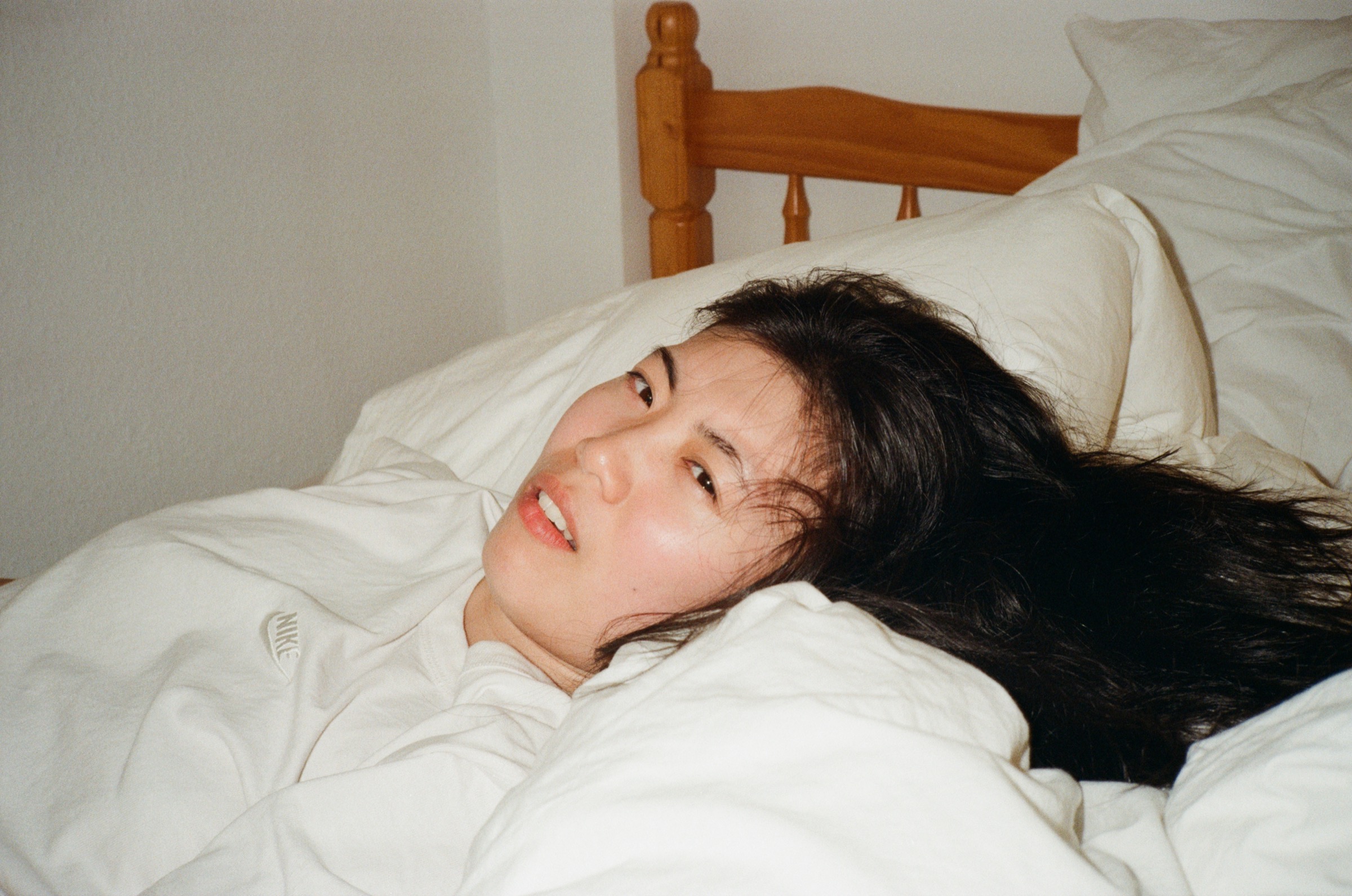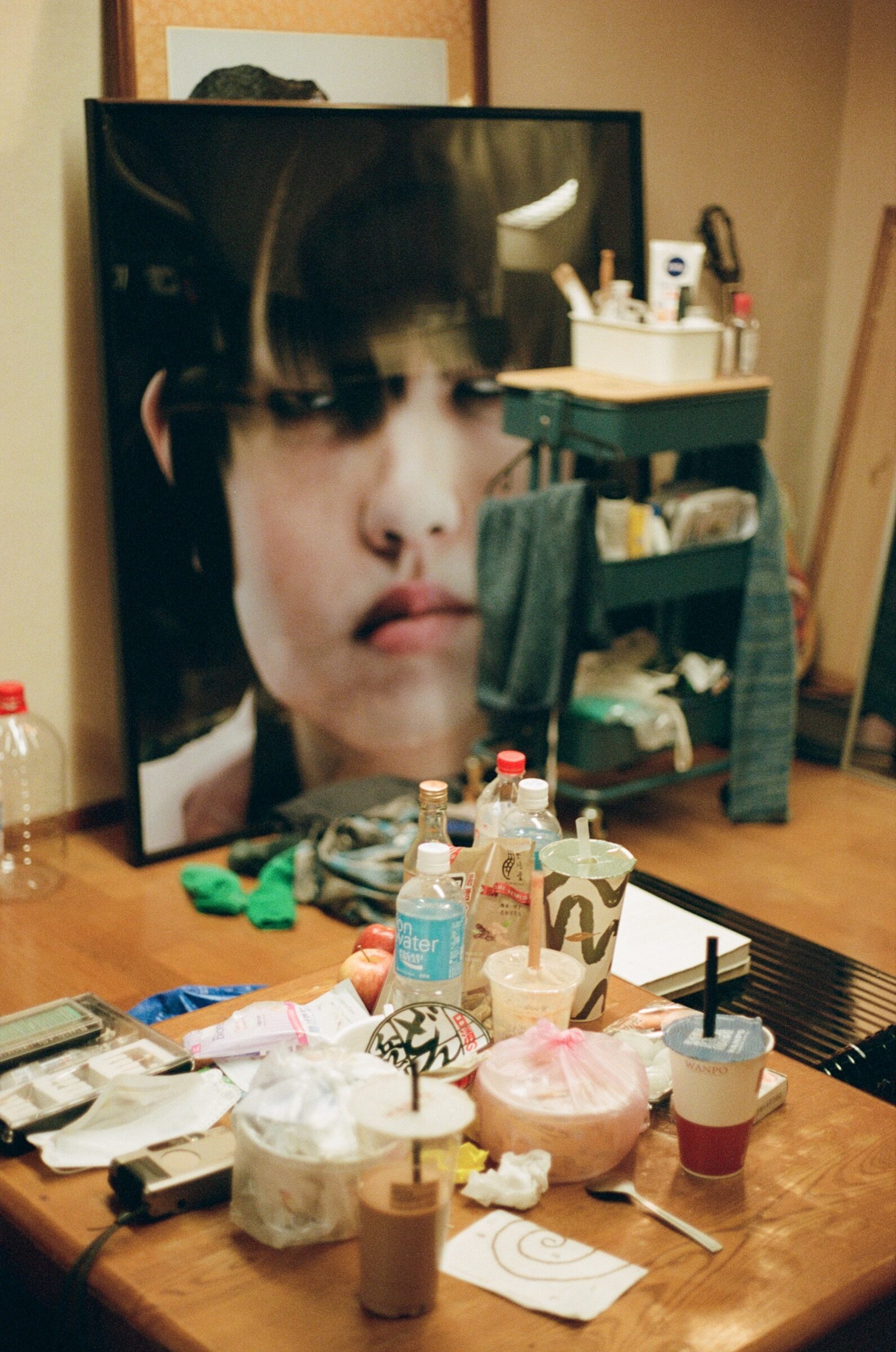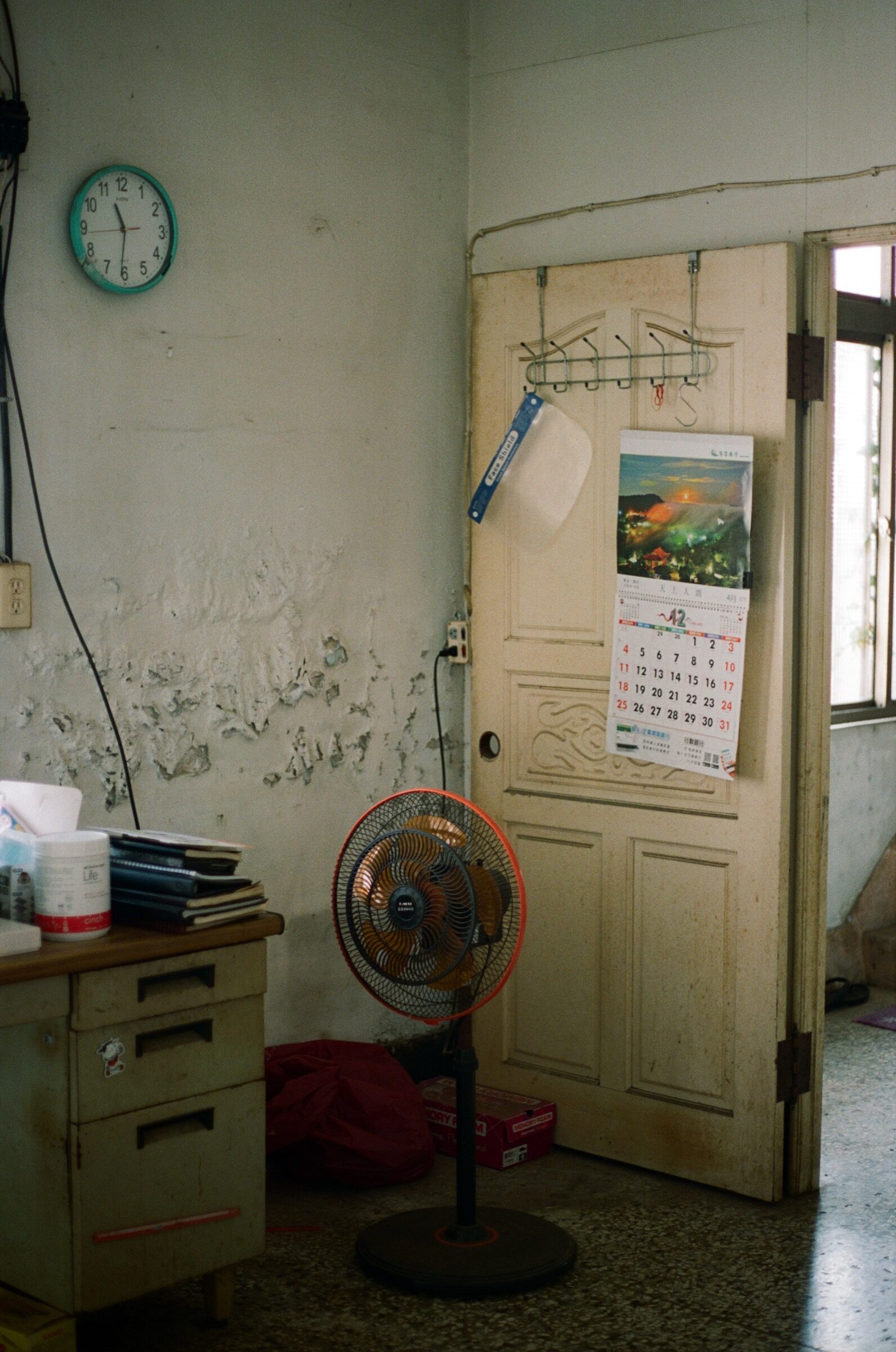Taiwanese-born photographer LingJiun Wang is now gaining recognition for her emotionally resonant visual storytelling from her base in London.
Known for her ability to capture fleeting, everyday moments, LingJiun Wang’s work spans landscapes, portraits, and intimate documentary-style frames. Born in 1997 in Taiwan, she moved to London at 24 to study Photography at the University for the Creative Arts. Since then, she’s steadily built a reputation for her thoughtful and understated aesthetic, with her photographs appearing in several publications and galleries across London and Glasgow.
In Passing
With her latest series In Passing, London-based photographer LingJiun turns her lens inward, toward the soft, quiet spaces between people and their everyday lives. Rather than chasing spectacle, the project captures fleeting moments shared between close friends. The result is a deeply intimate collection of photographs that feel more like memories than documentation. Each image is tender, composed with care, and vividly rich in texture.
There’s an intentional stillness to In Passing. LingJiun resists dramatic flourishes or overworked composition. She highlights what’s often missed, for example, a person resting in a kitchen, a half-turned glance, a moment of solitary reflection. These are not performative portraits; they’re moments of pure presence.
The subjects appear in familiar, lived-in environments—homes shared with friends and spaces touched by routine. A red-checkered cloth, a hand behind the head, a beam of light crossing a face: these elements aren’t staged. They’re part of a visual rhythm that feels honest and emotionally grounded. Each image suggests a shared history, layered with comfort and complexity. This mix of intimacy and everyday detail gives the series its quiet power.
Light plays a central role throughout the series. It moves gently across skin and fabric, giving form to emotion without needing to dramatize it. LingJiun’s warm, muted palette evokes nostalgia but avoids cliché. The atmosphere is soft, almost hushed, like listening in on a private conversation you’ve also had before.
What makes In Passing stand out is its refusal to explain itself. There’s no overt narrative or forced emotion, just pure observation. Each photo invites the viewer to pause, to notice, to remember. In a weird world dominated by loud visuals and fast consumption, LingJiun reminds us of the value of slowness and sincerity. In Passing is a portrait of care, not in major declarations or such, but in simply looking and being present. LingJiun shows us that the small moments often carry the most meaning. All we have to do is pay attention.
Echoes
In Echoes, LingJiun turns her lens toward the quiet spaces of her childhood home in Taiwan, a former factory office later transformed into a family residence. By 2023, the house stands nearly empty, its rooms sparse, and its walls marked with subtle traces of time. Rather than mourning what’s gone, LingJiun captures the stillness with quiet reverence, inviting reflection on what remains after we leave and whether a space can still be called home once its people have moved on.
The photographs are unembellished and deliberate. A rice cooker on a counter, a calendar frozen on an old date, a pair of scissors hanging on the wall — these small, everyday details hold weight in their ordinariness. Though no people appear, the presence of life lingers in each frame. The silence in these images is full rather than empty, suggesting a past that hasn’t vanished but settled into the textures of the space.
Without sentimentality, Echoes observes rather than stages. LingJiun doesn’t try to reconstruct the past but listens to what the house still holds. In doing so, they remind us that memory doesn’t disappear with absence. Like architecture, it shifts, softens, and waits quietly to be noticed.



